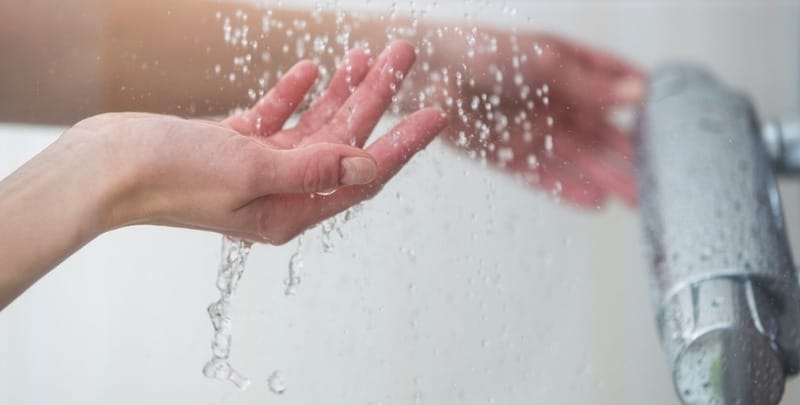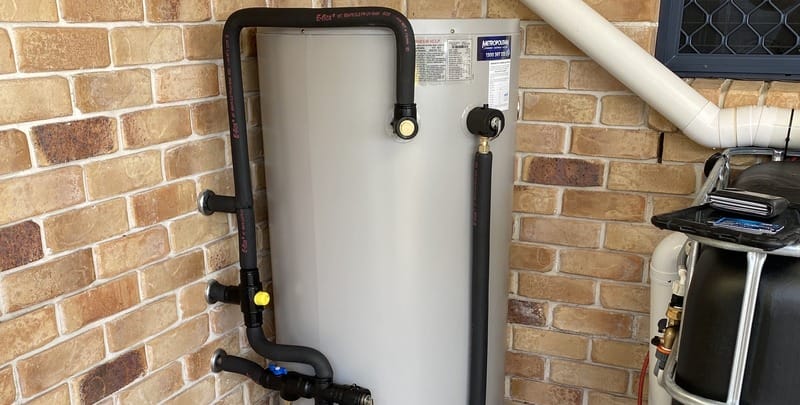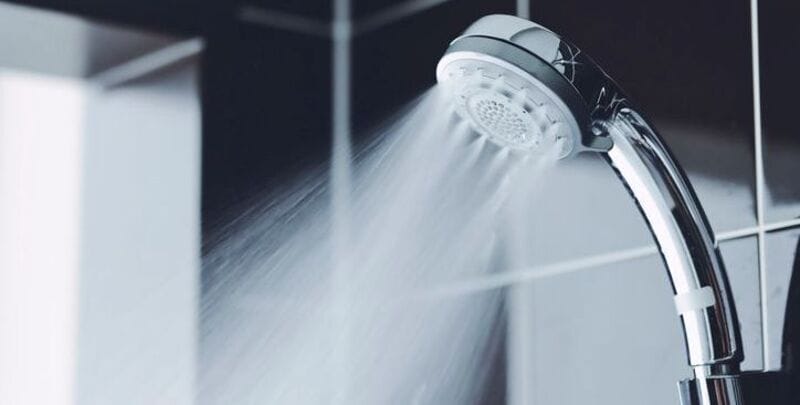
10 Most Common Hot Water System Problems
For many Australian households, a reliable hot water system is crucial for daily activities like showering, washing dishes and doing laundry.
However, encountering hot water system problems is not uncommon, whether it’s not enough hot water, inconsistent water temperature, or a disruptive water leak. Understanding these issues can help in maintaining your system’s efficiency and longevity.
Common problems range from a faulty element in electric water heaters to a malfunctioning pilot light in gas water heaters. Each type, whether it’s a tankless system or a storage tank model, comes with its unique set of challenges. Issues like sediment build-up, tank corrosion, or problems with the pressure relief valve can impair their functioning.
This article dives into the 10 most frequent complications that might affect your hot water unit, offering insights into why these issues occur and how they can be addressed. Whether you’re dealing with cold water from a hot tap or a noisy hot water system, understanding these problems is the first step towards solving them.
1. Inconsistent Water Temperature
One of the most common hot water problems in both electric hot water systems and gas hot water systems is inconsistent water temperature.
This issue can stem from a broken thermostat, faulty heating elements, or problems with the temperature settings. Inconsistent temperatures can mean your water heater is not functioning properly, leading to fluctuations between hot and less hot water.
Additionally, sediment build-up in the hot water tank can also affect water flow and heat distribution. Regular maintenance, such as checking the anode rod and flushing the drain valve, can help ensure that your hot water service remains consistent, avoiding sudden changes that can affect your daily hot water usage.
2. Water Takes Too Long to Heat
If your hot water heater is taking too long to heat water, it might be an issue with the heating element or electric water heater settings. In electric hot water systems, a malfunctioning element or tripped circuit breaker can delay the heating process. For gas water heaters, check if the gas line is supplying adequate gas, or if the gas bottle needs replacement.
Another factor could be water intake restrictions or loose connections that affect water pressure, slowing down the heating efficiency. Ensuring that your system’s plumbing services are functioning correctly can help mitigate these issues, reducing running costs and improving the speed at which you receive warm water.

3. Insufficient Hot Water Supply
A frequent complaint among users of both gas water heaters and electric hot water systems is an insufficient supply of hot water. This could be due to a hot water heater that’s too small for the household’s needs, or an issue with the temperature relief valve not working properly, which affects how much hot water is available.
Another common cause is a malfunctioning isolation valve or sediment that blocks water flowing efficiently through the system. Regular checks for these issues can help ensure that your hot water units and hot water services are operating optimally, preventing scenarios where the water is too hot or there’s not enough of it for daily use.
4. High Energy Bills
Experiencing unexpectedly high energy bills can often be traced back to inefficiencies in your hot water heaters, whether gas water heater or electric hot water system. A common culprit is an old or malfunctioning unit that requires more energy to function properly, significantly driving up costs.
Issues such as notice water leaking or strange noises coming from the heater can indicate that it is not operating efficiently. Regular maintenance checks can identify problems like sediment buildup or a faulty fuse box, which can be consuming extra power. Addressing these issues promptly not only reduces energy consumption but also extends the life of your hot water system.
5. Water Leaks
Water leaks in your hot water system can lead to significant water loss and potential damage to your property. Often, leaks may also be accompanied by stinky water or a rotten eggs smell, which indicates bacterial growth in the tank or problems with the anode rod that needs addressing.
Identifying the source of the leak is crucial. It could be from loose connections, corrosion, or a failing pressure relief valve. Regular inspections can catch these issues early, preventing the unpleasant odours associated with stagnant water and ensuring that your system operates efficiently without unnecessary waste or damage.

6. Discoloured Water or Unpleasant Smell
Discoloured water or an unpleasant smell emanating from your hot water taps can be alarming. These symptoms often indicate the presence of rust or bacteria within your water heater. Rust can occur when the anode rod, designed to prevent corrosion, fails and allows the tank itself to corrode.
Bacterial growth, resulting in smells akin to rotten eggs, is usually due to stagnant water in the heater for prolonged periods, especially in systems that aren’t used regularly. Flushing the system and replacing the anode rod are effective solutions.
Additionally, adjusting the water heater’s temperature to above 60°C may help reduce bacterial growth while ensuring safety and efficiency. This temperature refers to water stored inside the tank, not the heat of the water delivered by your taps or shower (which will be 50°C or less).
7. Noisy Operation
A noisy hot water system can be more than just a nuisance; it often signals underlying issues needing immediate attention. Common sounds include popping or rumbling noises, typically caused by sediment build-up at the bottom of the tank. As water heats, the sediment layer can cause water to boil and produce these unsettling sounds.
To address this, flushing the tank regularly is recommended to remove the sediment. Another cause of noise could be scale formation on the heating elements in electric water heaters. Checking and cleaning the elements can help reduce the noise and improve the system’s efficiency, ensuring it runs smoothly and quietly.
8. Pressure Problems
Low water pressure in hot water systems can greatly affect the comfort and efficiency of your daily water usage. This issue often stems from clogged pipes or, in some cases, a faulty pressure relief valve that is not regulating the pressure effectively. Mineral deposits within the system can also restrict water flow, leading to reduced pressure.
To resolve these issues, check for any blockages in the pipes or the valve and consider descaling the system if mineral buildup is significant. Regular maintenance checks can prevent such problems by ensuring all components are clean and clear, thus maintaining adequate water pressure throughout your home.
9. Frequent System Shutdowns
Frequent shutdowns of your hot water system can be frustrating and may indicate a more serious problem. This could be due to overheating, where safety mechanisms automatically turn off the heater to prevent damage. Overheating might be caused by faulty thermostats or a non-functioning heating element that fails to regulate temperature properly.
Another potential cause is an electrical issue, such as a short-circuiting or overloaded circuit breaker, which can also lead to frequent shutdowns. It’s crucial to address these electrical concerns quickly to avoid potential hazards. Regular servicing can help identify and resolve such issues, ensuring your system runs reliably and efficiently without unexpected interruptions.

10. Corrosion and Physical Damage
Corrosion is a common issue for hot water systems, particularly in areas with hard water. The chemical reactions between the water and the metal components of the tank can lead to the degradation of the tank itself, as well as associated pipework.
Anode rods are designed to combat this by sacrificing themselves to corrosion instead of the tank, but they need regular replacement to be effective.
Physical damage to the system, such as dents or cracks in the tank, can also compromise its integrity and efficiency. Such damage often results from external impacts or poor maintenance practices. Regular inspections can help identify potential issues early, preventing minor damage from becoming major, costly problems.
Keep the Hot Water Flowing
Recognising and addressing the 10 common hot water system problems outlined can significantly enhance the performance and longevity of your unit. Regular maintenance, such as inspecting for leaks, sediment build-up and system corrosion, is crucial in preventing these issues from becoming major inconveniences.
By staying vigilant and proactive about your hot water system’s care, you can ensure reliable access to hot water for your household needs. Should issues arise, consulting with professional plumbing services can provide the necessary expertise to resolve problems efficiently and effectively, keeping your system in optimal condition.
Please note: This information is provided for advice purposes only. Regulations differ from state to state, so please consult your local authorities or an industry professional before proceeding with any work. See our Terms & Conditions here.
Published: 23 Apr, 2024